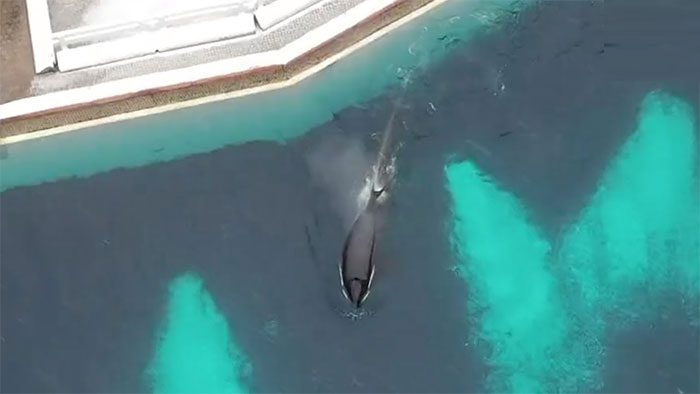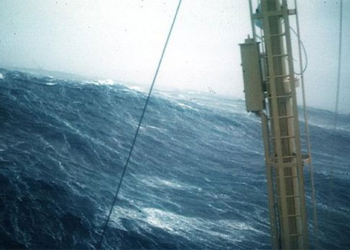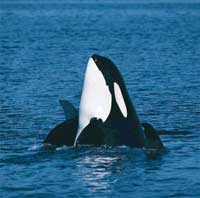MarineLand Park has confirmed that Kiska, the last captive orca in Canada, known as the “loneliest whale in the world,” passed away on March 9.
The cause of death for the 47-year-old orca Kiska has not been disclosed, but according to MarineLand, her health had been declining for several weeks. “The MarineLand marine mammal care team and experts did everything possible to support Kiska and are deeply saddened by her passing,” the park stated.
In 1979, when she was about 3 years old, Kiska was captured near Iceland along with another orca named Keiko, who starred in the 1993 film Free Willy. Kiska was taken to an aquarium in Iceland and lived with four other young orcas, including Keiko.
Shortly thereafter, Kiska and Keiko were sold to MarineLand, a theme park in Niagara Falls, Ontario, according to animal rights activist Phil Demers, who once worked at the park. Keiko was later sold to a theme park in Mexico and was rescued, rehabilitated, and returned to the waters near Iceland. In 2003, at the age of 27, Keiko died in a bay in Norway.
During her time at MarineLand, Kiska gave birth to five calves—Athena, Hudson, Nova, Kanuck, and one unnamed calf—all of whom died young. Kiska was kept in captivity for over four decades and had been living alone since 2011, after her companions and offspring had died.

Kiska is the last captive orca in Canada.
Kiska was the last captive orca in Canada. In 2019, the country passed Bill S-203, which prohibits the captivity, breeding, and trade of cetaceans for entertainment purposes. However, there was an exception for animals that were already in captivity, like Kiska. As a result, she continued to live at MarineLand.
Footage showing Kiska continuously banging her head against the tank attracted significant attention on social media in 2021. People for the Ethical Treatment of Animals (PETA) reported that Kiska spent her final years isolated in a cramped tank, swimming in continuous circles or sometimes floating lethargically. Kiska’s solitary existence led the Whale Sanctuary Project to describe her as the “loneliest whale in the world.”
Both animal rights groups believe that Kiska died due to bacterial infection. Experts are also conducting a necropsy on the animal. In response to Kiska’s passing, animal rights activists expressed concerns about how she was treated while in captivity.
“It’s heartbreaking to know that Kiska will never have the opportunity to move to a whale sanctuary and experience the freedom she so rightfully deserved,” shared Camille Labchuk, director at Animal Justice.





















































